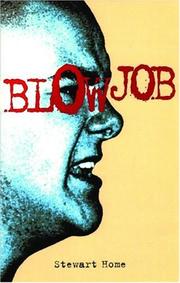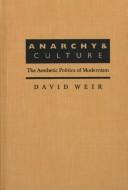| Listing 1 - 5 of 5 |
Sort by
|
Book
ISBN: 2921561344 9782921561341 Year: 1997 Publisher: Montréal: Écosociété,
Abstract | Keywords | Export | Availability | Bookmark
 Loading...
Loading...Choose an application
- Reference Manager
- EndNote
- RefWorks (Direct export to RefWorks)

ISBN: 1852425482 Year: 1997 Publisher: London : Serpent's Tail,
Abstract | Keywords | Export | Availability | Bookmark
 Loading...
Loading...Choose an application
- Reference Manager
- EndNote
- RefWorks (Direct export to RefWorks)
Anarchists --- Subculture --- Terrorism --- Fiction. --- Fiction. --- Fiction.

ISBN: 0415171121 Year: 1997 Publisher: London ; New York : Routledge,
Abstract | Keywords | Export | Availability | Bookmark
 Loading...
Loading...Choose an application
- Reference Manager
- EndNote
- RefWorks (Direct export to RefWorks)
Anarchists --- Socialists --- Biography. --- Biography. --- Kanno, Sugako, --- Kaneko, Fumiko, --- Meiji, --- Taishō, --- Hirohito, --- Assassination attempt, 1910. --- Assassination attempt, 1923. --- Assassination attempt, 1923. --- Japan --- Japan --- History --- Biography. --- Biography.
Book
ISBN: 2234045711 Year: 1997 Publisher: Paris : Editions Stock,
Abstract | Keywords | Export | Availability | Bookmark
 Loading...
Loading...Choose an application
- Reference Manager
- EndNote
- RefWorks (Direct export to RefWorks)
Anarchists --- Geographers --- Anarchistes --- Géographes --- Biography. --- Biographie --- Reclus, Elisée, --- Géographes --- Reclus, Elisée, --- Reclus, Elisee --- France --- Biography --- Reclus (elisee), geographe et theoricien francais de l'anarchisme, 1830-1905 --- Reclus, Élisée,

ISBN: 1558490841 9781558490840 0585084254 9780585084251 1558490833 9781558490833 Year: 1997 Publisher: Amherst, Mass. University of Massachusetts Press
Abstract | Keywords | Export | Availability | Bookmark
 Loading...
Loading...Choose an application
- Reference Manager
- EndNote
- RefWorks (Direct export to RefWorks)
Anarchism is generally understood as a failed ideology, a political philosophy that once may have had many followers but today attracts only cranks and eccentrics. This book argues that the decline of political anarchism is only half the story; the other half is a tale of widespread cultural success. David Weir develops this thesis in several ways. He begins by considering the place of culture in the political thought of the classical anarchist thinkers William Godwin, Pierre-Joseph Proudhon, Mikhail Bakunin, and Peter Kropotkin. He then shows how the perceived "anarchy" of nineteenth-century society induced writers such as Matthew Arnold, Henry James, and Fyodor Dostoyevsky to turn away from politics and seek unity in the idea of a common culture. Yet as other late nineteenth-century writers and artists began to sympathize with anarchism, the prospect of a common culture became increasingly remote. In Weir's view, the affinity for anarchism that developed among members of the artistic avant-garde lies behind much of fin de siecle culture. Indeed, the emergence of modernism itself can be understood as the aesthetic realization of anarchist politics. In support of this contention, Weir shows that anarchism is the key aesthetic principle informing the work of a broad range of modernist figures, from Henrik Ibsen and James Joyce to dadaist Hugo Ball and surrealist Luis Bunuel. Weir concludes by reevaluating the phenomenon of postmodernism as only the most recent case of the migration of politics into aesthetics, and by suggesting that anarchism is still very much with us as a cultural condition.
Sociology of literature --- Political philosophy. Social philosophy --- anno 1800-1899 --- Anarchism. --- Literature and society. --- Literature, Modern --- Modernism (Literature) --- Politics and literature. --- History and criticism. --- Modernism (Literature). --- Politics and literature --- Anarchism --- Literature and society --- Crepuscolarismo --- Literary movements --- Literature --- Literature and sociology --- Society and literature --- Sociology and literature --- Sociolinguistics --- Anarchism and anarchists --- Anarchy --- Government, Resistance to --- Libertarianism --- Nihilism --- Socialism --- Literature and politics --- History and criticism --- Social aspects --- Political aspects
| Listing 1 - 5 of 5 |
Sort by
|

 Search
Search Feedback
Feedback About UniCat
About UniCat  Help
Help News
News